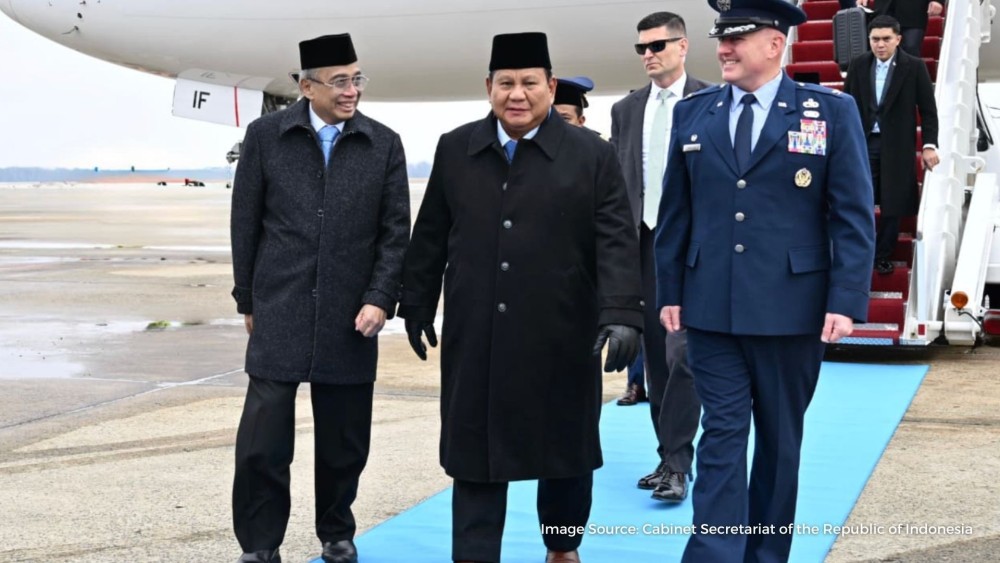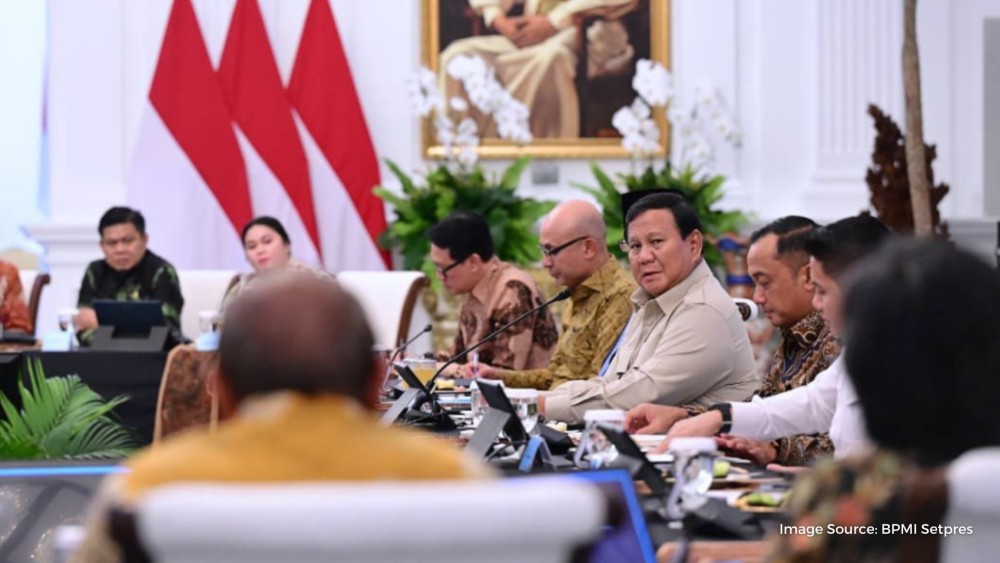This Week’s Headlines Aug 17 – Aug 23 (Issue #126)
23 Aug 2024

Indonesia central bank keeps rates steady, focuses on stabilizing the rupiah
Indonesia's central bank on Wednesday held interest rates steady, as expected, preferring to focus on stabilizing the rupiah before possibly easing rates later this year.
Bank Indonesia (BI) kept the benchmark 7-day reverse repurchase rate at 6.25%, where it has been since April, as expected by all 30 economists polled by Reuters.
BI also kept the overnight deposit facility and lending facility rates unchanged at 5.50% and 7%, respectively.
BI continues to see room to cut rates in the fourth quarter, while the focus on the current quarter will be on supporting a further strengthening of the rupiah exchange rate against the U.S. dollar, Governor Perry Warjiyo told a press conference.
"A strong rupiah is good for Indonesian economy. Stronger rupiah makes prices cheaper, especially for food prices and support for low inflation through imported inflation," Warjiyo said.
Inflation has been within the central bank's 1.5% to 3.5% target range since the middle of 2023, and it eased to 2.13% last month, the lowest since February 2022.
In April, BI surprised markets with a rate hike to support the rupiah, which had fallen to four-year lows against the U.S. dollar as risk aversion sparked by geopolitical concerns and uncertainty about U.S. interest rates triggered capital outflows.
The rupiah has strengthened by about 5% this month, and is trading near its strongest level this year, as the U.S. dollar softens on expectations that the Federal Reserve will cut rates in September.
Warjiyo said BI's baseline expectation is for the Fed to cut rates twice this year, and another three times in 2025.
Some economists expect BI to wait for a Fed cut before it starts policy easing of its own.
"Our view remains for the BI to commence monetary policy easing with a 25-basis-point (bps) rate cut in the fourth quarter, after the Fed cuts," Brian Lee, an economist with Maybank Investment Banking Group.
"Due to the BI’s focus on rupiah stability, we think the Indonesian central bank will, for now, want to lean against any risk of a resurgence in dollar strength and U.S. yields,"
The rupiah was trading at 15,480 per dollar on Wednesday, 0.4% weaker versus a day earlier where it hit its best level since the beginning of the year.
Some central banks have started easing policy, including in the Philippines and New Zealand. The Bank of Thailand on Wednesday held its key interest rate steady.
Source: Reuters
Government to shut down 13 coal-fired power plants
As many as 13 coal-fired power plants have a total capacity of 4.8 gigawatts (GW) and generate 66 million tonnes of carbon emissions, and some of them will naturally shut down by 2030 without intervention.
The government plans to shut down or decommission 13 coal-fired power plants (PLTU) owned by state-owned electricity firm PLN, an official said.
The Energy and Mineral Resources Ministry’s director general for renewable energy Eniya Leistiani Dewi said that the list included the Suralaya powerplant in Cilegon, Banten, and the Ombilin powerplant in Sawahlunto, West Sumatra.
"Three coal retirement studies were conducted: one by us, one by ITB [Bandung Institute of Technology] and one by UNOPS [United Nations Office for Project Services]," Eniya said on Tuesday, as quoted by CNN Indonesia.
“From these studies, we identified a list of 13 power plants outside of Cirebon [in West Java].”
Eniya said these 13 power plants have a total capacity of 4.8 gigawatts (GW) and generate 66 million tonnes of carbon emissions. She also mentioned that some plants would naturally shut down by 2030 without intervention.
"Some of the plants are old. As the [energy] minister said, they will retire naturally if left alone. There's a list of those expected to shut down before 2030," she said.
Eniya added that the ministry is developing a road map for retiring coal-fired power plants, which will be issued as a ministerial decree.
The road map will detail the criteria and process for deciding which plants should be retired.
"The decree will outline the retirement conditions and how to identify the plants that need to be retired. We are currently discussing this," she said.
The government plans to speed up the early retirement of the Cirebon-1 powerplant, following an agreement with the Asian Development Bank (ADB) under the Energy Transition Mechanism (ETM).
Originally set to close in July 2042, the 660-megawatt plant will shut down by December 2035. The agreement was signed by ADB, PLN, Cirebon Electric Power and the Indonesia Investment Authority (INA) during COP28 in Dubai in December 2023.
As part of the shutdown plan, the construction of the Sumatra to Java electricity transmission network initially targeted for completion in 2028, will be accelerated to 2026.
"Originally, it was planned for 2028, but now it must happen in 2026, earlier than expected. So, the transmission from Sumatra to Java must be established and finished before 2028," Eniya said, as quoted by CNBC.
Eniya explained that the Sumatra-Java transmission network is necessary because renewable energy in Java –produced by geothermal and hydropower plants – cannot support the early retirement of the Cirebon-1 power plant.
Source: The Jakarta Post
2025 Draft State Budget: Transition and growth in focus for Indonesia
The Indonesian government announced the Draft State Budget (RAPBN) for the 2025 fiscal year through the annual tradition of financial memorandum delivery on Friday.
The RAPBN focuses on two main themes: transition and sustainability. These themes align with the sustainability agenda promoted by President-elect Prabowo Subianto and Vice President-elect Gibran Rakabuming Raka, the eldest son of President Joko Widodo (Jokowi).
Jokowi's administration has also designed an RAPBN that facilitates a smoother government transition. He has allowed the incoming government to include its priority programs in the draft state budget.
This marks a departure from past practices, where the incumbent government typically excluded the successor's transition team from RAPBN preparation.
Growth amid stagnation
Jokowi's administration has set an economic growth target of 5.2 percent for next year, slightly higher than the current year's projection of 5.1 percent amid fears of global economic stagnation.
The International Monetary Fund (IMF) has projected global economic growth of 3.2 percent for 2024 and 2025, the same rate as in 2023.
In his speech during the 2025 RAPBN and Financial Memorandum Delivery at the House of Representatives (DPR) Plenary Session, Jokowi said that domestic demand will be the country's mainstay in supporting the economy.
He added that the strategy of relying on domestic demand is in line with the government's efforts to control inflation, create jobs, and distribute social assistance and subsidies to maintain people's purchasing power.
Statistics Indonesia (BPS) has recorded deflation in the last three months.
On the one hand, deflation could indicate sufficient food supplies in the market and stable prices. On the other hand, the consistency of deflation over the past few months has raised concerns about the weakening of people's purchasing power, which could dampen demand.
To address low demand, the government will focus on increasing export-oriented and high-value products with the support of fiscal incentives.
In line with this, Finance Minister Sri Mulyani Indrawati has assured that the social protection budget is on target for all levels of society.
Macroeconomic assumptions
Jokowi's administration has made several macroeconomic assumptions in devising the budget, some of which are within the range agreed upon during a discussion with the DPR, while other assumptions exceed it.
The assumption that exceeds the agreed limit pertains to the rupiah exchange rate. Jokowi announced that the rupiah exchange rate is estimated to hover at around Rp16,100 per US dollar, higher than the previous projection of Rp15,300–Rp15,900 per US dollar.
The Financial System Stability Committee (KSSK) has expressed optimism that the rupiah will strengthen steadily, in line with attractive yields, controlled inflation, and strong economic growth in Indonesia.
Meanwhile, the yield on 10-year government bonds is estimated at 7.1 percent, which is still within the agreed range of 6.9–7.2 percent.
The assumptions also include an estimated Indonesian Crude Price (ICP) of US$82 per barrel and projected liftings of oil at 600,000 barrels per day and natural gas at 1,005 million barrels of oil equivalent per day.
Fiscal deficit
One of the highlights of the RAPBN is the widening fiscal deficit for 2025, compared with the 2024 target. The 2024 state budget deficit is 2.29 percent, while the 2025 target is set at 2.53 percent.
Meanwhile, state revenue is targeted to reach Rp2,996.9 trillion (around US$190.92 billion), comprising tax revenue of Rp2,490.9 trillion and non-tax revenue of Rp505.4 trillion.
Sustainable tax reform and efforts to maintain the investment climate will be bolstered to achieve the revenue target.
State expenditure will be directed toward supporting the government's priority programs to provide a multiplier effect.
The two main programs of the upcoming government are specifically the development of Nusantara—the new capital city in East Kalimantan—and free nutritious meals for school students.
The free meal program marks a new approach to the transitional state budget, incorporating the next government's initiatives into the current fiscal design.
Notes for Prabowo's administration
Fiscal management is crucial to ensuring the nation's long-term sustainability.
Indonesia has maintained a positive image in the eyes of the global community. For instance, it succeeded in maintaining economic growth around 5 percent post-pandemic and reduced budget deficits to below 3 percent.
Prabowo's administration must sustain this positive image. The transition period should be used to effectively learn fiscal strategies from the current government.
The next government must ensure wise and careful fiscal management to maintain the state budget's role as a "shock absorber."
Source: Antaranews






